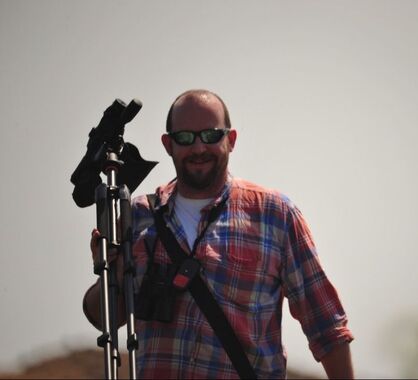 Prof. Richard Grenyer Prof. Richard Grenyer It was a real privilege to come to the second ICCB, two years after I gave a keynote at the inaugural conference down in Sde Boker. The intent of the conferences, it seems to me, is to help continue to establish conservation science (and I hope, too, conservation social science) as a mainstream component of research and teaching in Israel’s university system. The conferences also aim to foster an inclusive environment at which the work of practitioners and scientists in the SPNI, INPA, and elsewhere - and of early career researchers in universities of course - is as welcome and as valued as the latest research from the top professors. Both these aims seems to be becoming realised fast. To me, one of the real strengths of organismal biology courses in Israel is the continued focus on field observations: it’s at so much risk in many courses worldwide. And one of the things I saw very clearly at the second conference at the Technion in Haifa was that same field expertise being further developed through into research outside the universities, by graduates in the various branches of government and the NGOs, and quite a few collaborations that reached across the research-action gap to do meaningful conservation work. I also saw lots of great talks by young academics just getting started, and who were getting stuck in to these incredibly difficult problems - successful conservation interventions in tiny communities where rare hyaenas were killing pets, conservation planning to the meter scale, the sudden discovery of a deep water reef community just off Tel Aviv. It made me very hopeful for the future. What would I have loved to see more of? Conservation - and conservationists - across borders. I know how hard that is right now, but meaningful conservation must follow the distributions of life on Earth as much as it can. At the inaugural conference there were two Palestinian participants, and I believe one Jordanian. This time there were none. There’s a real danger in turning inwards - we see it trivially but instructively in the UK where we spend a fortune on conserving ospreys and barn owls, to the detriment of many other species of concern, knowing that both birds matter locally but also that both have global ranges covering entire hemispheres and are not really in much trouble. So: species and habitats that are relatively common is Israel may be rare or threatened in regions beyond the border fences, and the reverse may also be true. And of course many migrating birds, drifting plant seeds and slowly-warming corals will ignore those same borders anyway. So for the third conference, I’d love to see a session, ideally with talks from conservationists in neighbouring countries, that celebrates the successes and recognises the copious challenges of conservation in and across the geopolitics of the region. Tough, I know - but if such a session proves temporarily impossible, then someone at least must explore the potential dangers of an insular conservation. And in time, hopefully, such a session can run. Rich Grenyer Associate Professor, School of Geography & the Environment Fellow and Tutor, Jesus College University of Oxford 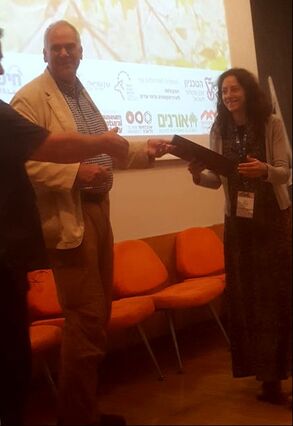 Hila Segre receiving the best 'People and Nature' lecture prize from Prof. Kevin Gaston Hila Segre receiving the best 'People and Nature' lecture prize from Prof. Kevin Gaston Upcoming events The ISCB will be co-hosting the upcoming Merav-Ziv symposium on the 29th of May in Midreshet Ben-Gurion. This year the symposium is dedicated to conservation philosophy and ethics. There are a few Student Conferences for Conservation Science (SCCS) happaning this summer, These are great opportunities to meet renowned plenary speakers, to attend career-enriching trainings, workshops and field trips and generally have fun!
MEDECOS is an international conference organised under the auspices of ISOMED, the International Society of Mediterranean Ecology. In 2020 (6-11 September), it will take place in South Africa’s , The theme of the meeting is: Partnerships for Global Change. Winners of prizes at the ICCS 2019 Best Lecture 1st place was given to Daniella Moller from the Ben-Gurion University who spoke about the effects of oil pollution on arthropods in Evrona Best lecture joint 2nd place was given to Gabriella Moller from the Ben-Gurion University who spoke about parasitoid responses to management regimes in vineyards. Yael Lenhardt from the Ben-Gurion University also received 2nd place prize for her talk about the consequences of noise pollution in the Adulam reserve. Best People and Nature talk prize was given to Hila Segre from the Technion who spoke about linking ecosystem assessments to stakeholders in the Carmel Best poster prize was given to Naama Arkin from the Volcani Center for her work on floral diversity, honeybee activity and pollination networks. 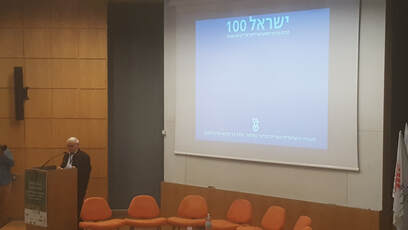 As an intrinsically multi- and interdisciplinary subject, conservation biology can greatly benefit by integrating the work of spatial and strategic planners and by encouraging conservation scientists to participate in planning processes. The 2nd meeting of the Israeli Chapter of the Society for Conservation Biology emphasized the importance of linking biological conservation with strategic planning by featuring a plenum panel discussion on “Israel 100 - Planning, Ecological Thresholds, and Biological Conservation.” Israel 100, a multi-disciplinary and multi-institutional initiative for strategic planning for Israel’s centennial (2048), was presented by Professor Shamay Assif of Technion’s Faculty of Architecture and Town Planning. Assif, as former head of planning at the Israeli Ministry of Interior and former chief engineer of Tel-Aviv (among other positions), has extensive experience in dealing with complex planning issues and has had tremendous influence on national and urban strategic planning in Israel – experience he now brings to his guiding work on Israel 100. Assif shared with the audience the process now taking place to analyze multiple trends and emerging societal needs in Israel, and integrate them into national strategic planning. Ofer Lerner, a professional planner, showed how the Technion is contributing its part to this national effort by identifying particular and crucial societal trends that will need to be addressed in Israel’s near future. Dr. Miri Tsalyuk, currently a post-doctoral fellow at Hebrew University shared her progress on defining ecological “red-lines”, work being conducted with Professors Eran Feitelson and Eli Stern and others. Following the presentations of representatives of the Israel 100 planning team, key figures in the conservation community in Israel were asked to respond, including Dr. Yehoshua Shkedy (Chief Scientist of the Israel Nature and Parks Authority), Professor. Tamar Dayan of Tel-Aviv University, Iris Hann (planner, lawyer and CEO of the Society for the Protection of Nature in Israel) and Professor. Alon Tal of Tel-Aviv University. The panelists challenged our capacity to safeguard biological conservation in Israel with a continuously growing human population. Indeed, as Prof. Assif suggested, Israel 100 needs to plan for building “a second Israel” in order to facilitate for the country’s growing demand for housing, infrastructure and economic development. “Red Lines” were also debated, including whether we can rely on strictly defined reserves and open spaces for long-term biodiversity conservation, or whether conservation must take place at all levels and under all types of land use regimes. The importance of ecological corridors was discussed, with an understanding that some of Israel’s designated corridors are in danger of closing due to encroaching construction and development. The conference keynote speakers, Prof. Kevin Gaston and Dr. Monika Böhm, provided concluding remarks, highlighting the need for clear and specific targets for conservation planning in Israel and urged that the state of biodiversity in the world and in Israel should be seen as in crisis. Importantly, the audience had a chance to see how biodiversity conservation was being discussed and integrated into the strategic planning process, and how they – as conservation scientists – can take a more pro-active role in assuring the prioritization of biodiversity conservation in developing strategic and spatial plans, despite the immense challenges that exist and will emerge in the near future. They suggested that protection of our natural assets must be a fundamental basis for, not an additional component of, the Israel 100 process, and that we – as conservation scientists – should take a more pro-active role in assuring the prioritization of biodiversity conservation in developing strategic and spatial plans, despite the immense challenges that exist and that will emerge in the near future. Prof. Daniel Orenstein Faculty of Architecture and Town Planning, Technion – Israel Institute of Technology Japan has controversially decided to withdraw from the International Whaling Commission and will now switch back to commercial whaling. While the international community abhores this decision, we present here a uniquely positive take on the development, written by the captain of the Sea Shepard. This ‘lawless’ organisation have divided conservationists for many years for their patrolling, halting, and sabotaging the research whaling efforts in the Southern Ocean.
Sea Shepherd Statement from Capt. Paul Watson Sea Shepherd is pleased to see that Japan is considering withdrawing from the I.W.C. and will openly hunt whales commercially. Commercial whaling is absolutely forbidden in the Southern Ocean Whale Sanctuary and commercial whaling anywhere is illegal. This means that the IWC will pass the resolution to create the South Atlantic Whale Sanctuary. This means that Japan is now openly declaring their illegal whaling activities. No more pretense [sic] of research whaling. With this announcement Japan has declared themselves as a pirate whaling nation. This will make Sea Shepherd’s objective of shutting down these poachers much easier. Why is this a positive Development 1. Because Japan has never stopped commercial whaling. They have ‘hidden’ it behind the excuse of so called ‘scientific whaling’ since 1987. They have continued commercial whaling despite the International Court of Justice ruling that there is no legal justification for their so-called ‘scientific whaling.’ Now there can be no façade, Japan has joined Norway and Iceland in their open defiance of international conservation law. All three nations are pirate whaling nations. 2. With Japan out of the International Whaling Commission, the IWC can now pass the South Atlantic Whale Sanctuary. The IWC can now focus on conservation instead of whaling. Japan has been the single greatest detriment to the IWC during its entire history. 3. The Japanese puppet nations will no longer be obligated to vote against conservation and without Japanese bribes, many will simply quit the IWC. Mongolia for example has absolutely no connection to whaling historically or practically. 4. The IWC can now vote to condemn industrial commercial whaling. 5. Japan will not be able to kill whales in the Southern Ocean. It is an internationally established whale sanctuary and the only reason Japan has been able to flaunt the law is by invoking the excuse of ‘scientific research whaling.” Overt commercial whaling is strictly prohibited in the Southern Ocean and Japan has indicated it will quit the Southern Ocean while expanding whaling in the North Pacific. This would mean that the current whaling season in Antarctic waters will be the last. 6. Japan will be able to withdraw from the Southern Ocean without losing face. 7. Opposition to illegal Japanese commercial whaling will be easier. Basically, we will be dealing with poachers. Japan will no longer be able to pretend that their commercial whaling is research whaling. 8. Sea Shepherd’s objective to end whaling in the Southern Ocean Whale Sanctuary will have been met. The last time Sea Shepherd engaged with the Japanese whaling fleet in the Southern Ocean was for the 2016/2017 whaling season. We sent the Ocean Warrior and the Steve Irwin. Japan countered with multi-million dollar military grade surveillance making it impossible for Sea Shepherd to close in on their operations. Sea Shepherd has been unable to compete with such a massive security investment on the part of Japan. On the positive side, Japan has been forced to expend a great deal of money on security each year to maintain this edge. Sea Shepherd’s relentless opposition to Japanese whaling in the Southern Ocean since 2002 has been a major factor in undermining Japanese whaling activities. It has cost the whalers and the Japanese government tens of millions of dollars and saved the lives of over 6,000 whales. A whaling free Southern Ocean has been our objective for two decades and if Japan moves forward with their threat to withdraw from the IWC and to resume overt commercial whaling, this objective will be realized. Readers… what’s your opinion? At the end of 2018, WWF published their twelfth, bi-annual report on the status of biodiversity, highlighting the importance of global conservation efforts - the living planet report. Their message is clear: unsustainable human activity is pushing the planet’s natural systems that support life on Earth to the edge. In the 1950s, the Great Acceleration began to dramatically increase the global human population by improving our quality of life, leading to an increase in the demand for energy, land, water, and increasing overall consumption. The products we consume, the supply chains behind them, the raw materials and export routes we use all have a significant impact on the environment. Scientists now claim that the Holocene period has ended and we entered a new era, the “Anthropocene”.
The index shows a general decline of 60% in population sizes from 1970- 2014 (Fig 20). The decline is especially evident in the tropics, with South and Central America experiencing a dramatic decline of 89% in population sizes since 1970. Freshwater species have also declined dramatically; 83% since 1970. Measuring biodiversity on Earth is complex, so this report also examines three other indicators, measuring changes in species distribution, extinction risks and changes in community composition. All of these draw the same picture - showing sharp drops or changes. The report listed habitat degradation, unsustainable exploitation of resources, invasive species and climate change as the main causes of the declines in biodiversity we see today (Figure 15). This latest assessment found that only one quarter of the earth is not currently being exploited by man. In the marine system, 6 million tons of fish have been removed from the oceans since the 1950s. Plastic is now found in all marine systems, from the coasts to the depths, with an estimate of between 4.8 to 12.7 million tonnes of land-based plastic waste entering the ocean in 2010 alone.
The report stresses that achieving this ambitious goal will require changes that come from governments, businesses, research, civil society as well as from personal choices and actions. The window of opportunity must be exploited in order to change the trajectory of biodiversity trends, by defining new targets for beyond 2020 and developing sustainable industries.
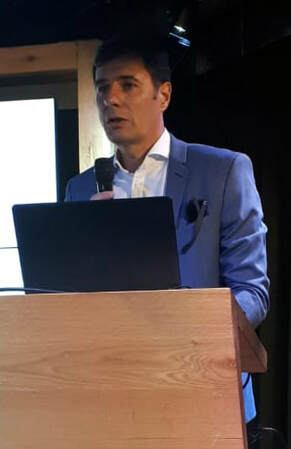 Mr. Sandor Szelekovszky, Mr. Sandor Szelekovszky, Leigh Allison Kroeger interviews Sàndor Szelekovszky of the Delegation of the European Union to the State of Israel Mr. Sandor Szelekovszky is currently the First Counsellor and Head of the Trade and Economic Section, of the EU delegation to Israel. The overall aim of the delegation is to enhance relations of the EU with Israel and specifically that of Mr. Szelekovszky’s section is to promote economic cooperation in areas such as trade, agriculture, energy, transport etc. He obtained his degree in International Relations at the University of Budapest, Hungary and is an official of the European Commission. He was posted as an EU diplomat to Israel more than three years ago. As an integral part of the anti-plastics strategy in Europe, he acknowledged that establishing the right regulatory framework and incentives as well as raising awareness were an important in reducing plastic litter and promoting sustainable consumption an production patterns. As for the efforts in Israel he feels that the focus should be on creating the necessary regulations. In addition, he recommended increasing incentive measures to encourage consumers shift their preferences, reduce plastic consumption, and lead a more sustainable life at home. Overall the fight against plastics is progressing, with the most promising EU legislation just released over December on an EU-wide ban on single-use plastics coming in to action in 2021. We thank Sandor for his continuing advocacy in this prescient conservation topic! This past July, the 55th annual meeting of the Association for Tropical Biology and Conservation (ATBC) took place in Kuching, Sarawak, Malaysia. The conference was attended by more than 900 delegates from 65 countries, and included 12 pre- and post-conference workshops, 2 panel discussions, 6 keynote presentations, 35 symposia, 50 general oral sessions and 2 poster sessions. The theme of the conference this year was “Linking Natural History and the Conservation of Tomorrow’s Tropical Ecosystems”. Naturally much of the content concerned conservation issues mostly relevant to the tropics, however, several symposia addressed more general subjects such as citizen science (applicable anywhere). This was the reason I traveled to the conference – to present some ideas concerning the use of social media as a platform for citizen science and conservation, based on a Facebook group called “Herpetology – Israel” that was founded in July 2017 by Assaf Uzan, Alex Slavenko and myself, and about which we wrote together with Dr Yuval Itescu.
Besides the interesting presentations and posters, it was a pleasure meeting researchers and conservationists from such varied countries and disciplines and, evidently, the ATBC community is a warm and welcoming one, open to anyone interested in conservation in the tropics. It was particularly impressive to witness the attention devoted by the ATBC community not only to research and conservation, but also to issues such as inclusion of local communities in the aforementioned; respect for different cultures and ethnic groups; gender equality etc. Kuching is beautiful and at the end of each day I had a lot of fun exploring the city both geographically and gastronomically, together with other ATBC delegates. I thank the Israeli Chapter of the Society for Conservation Biology, as well as the National Natural History Collections of the Hebrew University of Jerusalem and the Society for the Protection of Nature in Israel for generously helping to make my journey possible. Akiva Topper 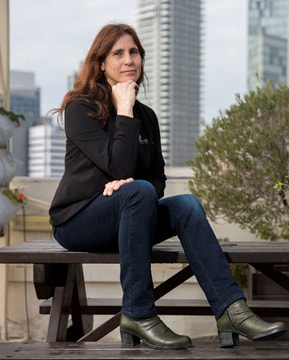 I hold a BA in Natural Sciences and Law, and an MA in Urban and Regional Planning, specializing in environmental planning. Throughout my life, I have been involved in various fields of nature preservation. I began my career with the Society for the Protection of Nature in Israel (SPNI) as a teacher-soldier, and years later, I moved into environmental planning, working as the director of the Planning Department in the Ministry of Environmental Protection. I also worked for two years in the private sector as an independent planner and lawyer. Despite its small size, the State of Israel is characterized by exceptional biological diversity on an international scale. In addition, Israel will soon become the most densely populated country in the Western world. These two factors, coupled with constant pressure for development, presents a profound challenge in the effort to preserve Israel’s nature. The planning arena is, therefore, an important key in the effort to preserve open spaces of a size, continuity and quality that will ensure the preservation of nature in Israel. However, preserving the open spaces is not enough, and the next step is land management in a manner that will preserve biodiversity for the future as well. In recent years, we have also been working to preserve nature and biodiversity in marine habitats, which are very much threatened by various development initiatives. SPNI is Israel’s leading, oldest and largest nature preservation organization. Since its establishment in 1953, SPNI has been active in a variety of fields for the conservation of Israel’s biodiversity: influencing decision makers in the planning committees, the Knesset, the government and the legal arena; ongoing formal and informal educational activities for all ages; and public campaign activities. The preservation of biodiversity in Israel presents a crucial challenge, in which SPNI, as a civil society organization with a wide arrange of professional capabilities, plays a significant and leading role. Iris was named as one of the ‘100 most influential people in Israel’ by the Marker Magazine
Upcoming events
And for up-to-date news, sign up to the SCB blog on their website. 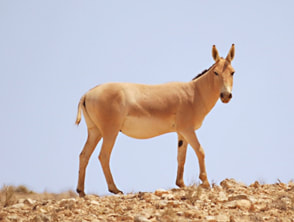 Fellowships and awards Make sure to check out the the David H. Smith Conservation Research Fellowship Program, for Post-docs at American Universities. 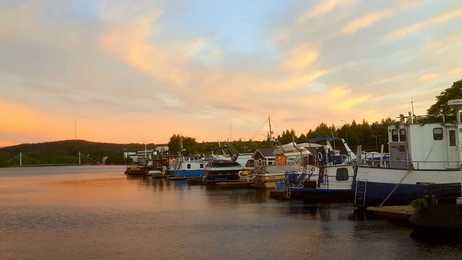 This past June the 5th European Congress of Conservation Biology took place in Jyväskylä, Finland. It was attended by over 800 delegates including 10 Israelis. The conference itself was excellent – many interesting lectures, discussions, workshops and events. The main theme of the meeting was planetary wellbeing and consequently the CBD, IPEBES and biodiversity offsets featured in the plenaries. Beyond that there were many other topics representing the truly interdisciplinary field of conservation. Some research presented dealt with the effectiveness of conservation actions and measuring these, perspectives on the natural environment and human wellbeing, how different stakeholders could be better involved with conservation – from global policy-makers to local communities, new tools such as genomics and culturomics were presented and much more. One of the nice additions to this meeting was having an in-house cartoonist that followed the meeting - Seppo Leinonen. An extremely nice guy who drew elaborate cartoons following all of the plenaries (while the speakers were speaking…) and in the breaks between lectures – drew for whomever wanted a cartoon based on their conservation work / story. At times, the queue to get your cartoon drawn was even longer than that to get coffee and that is saying a lot! We also had lots of fun in the evenings – enjoying the midnight sun in Finland, nice food and drinks, the plethora of lakes, and looking for flying squirrels in the city park. Hope you all will be able to join the SCB crowd in the upcoming ICCB 2019 in Malaysia, next summer! |
News published regularly in the ISCB newsletter. Maintained by Leigh Kroeger and Uri Roll Archives
May 2019
Categories
All
|
Proudly powered by Weebly
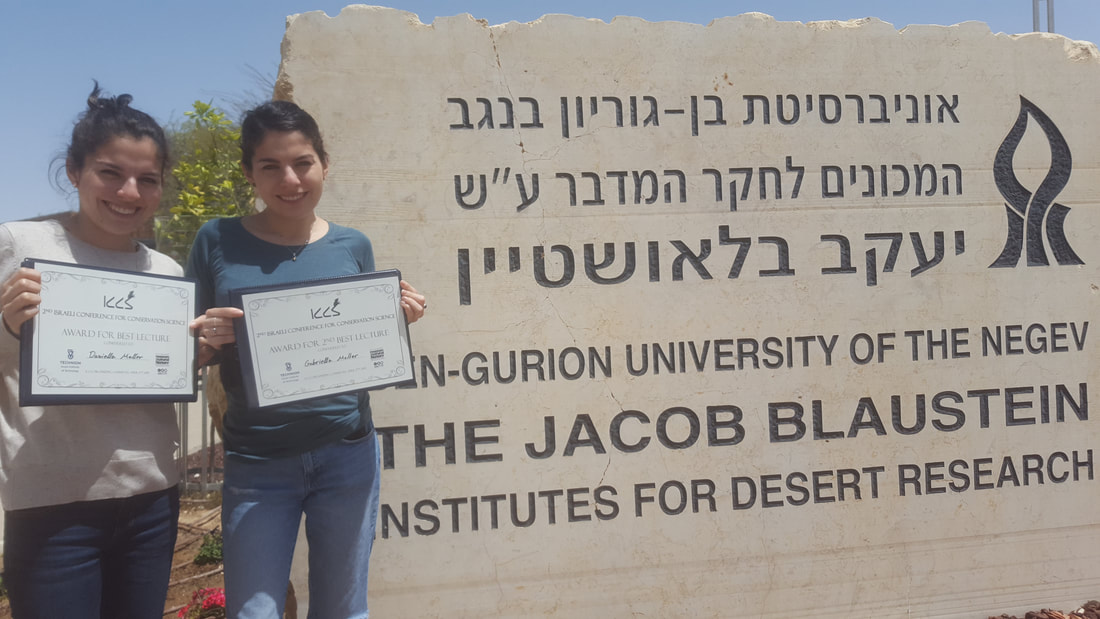
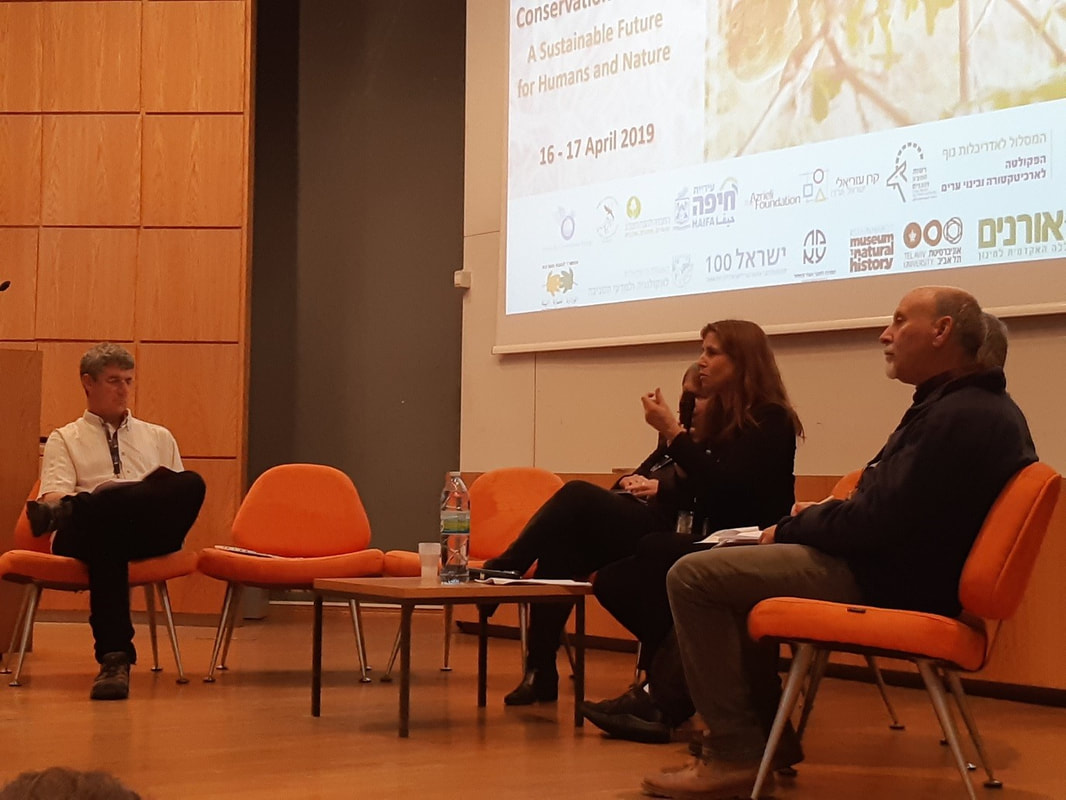
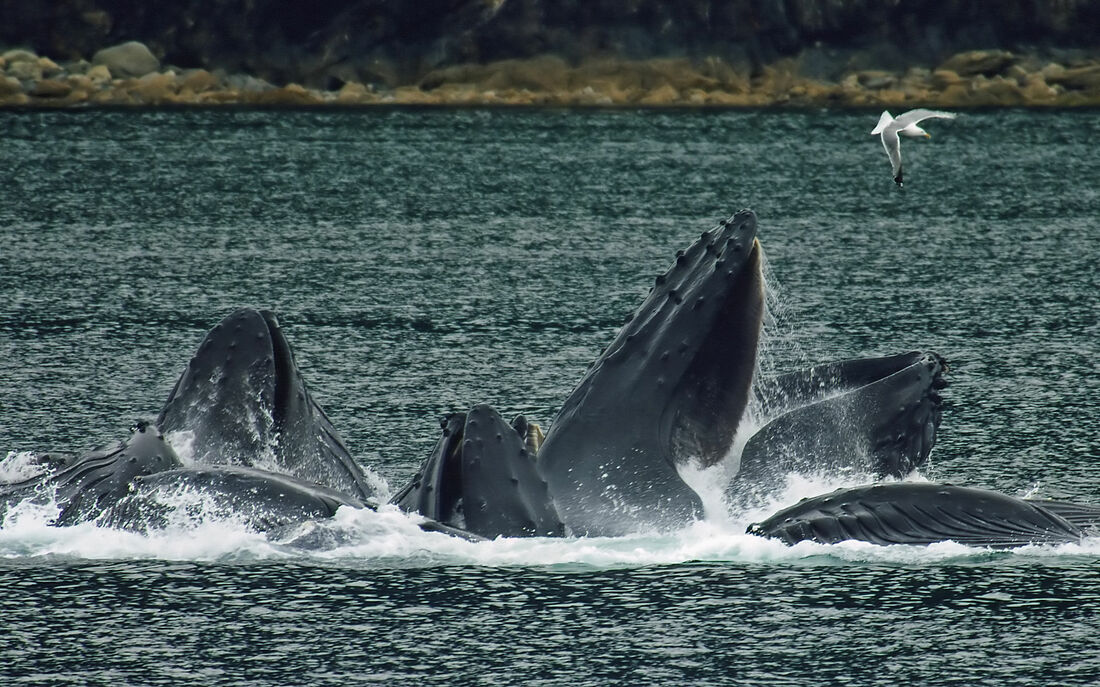
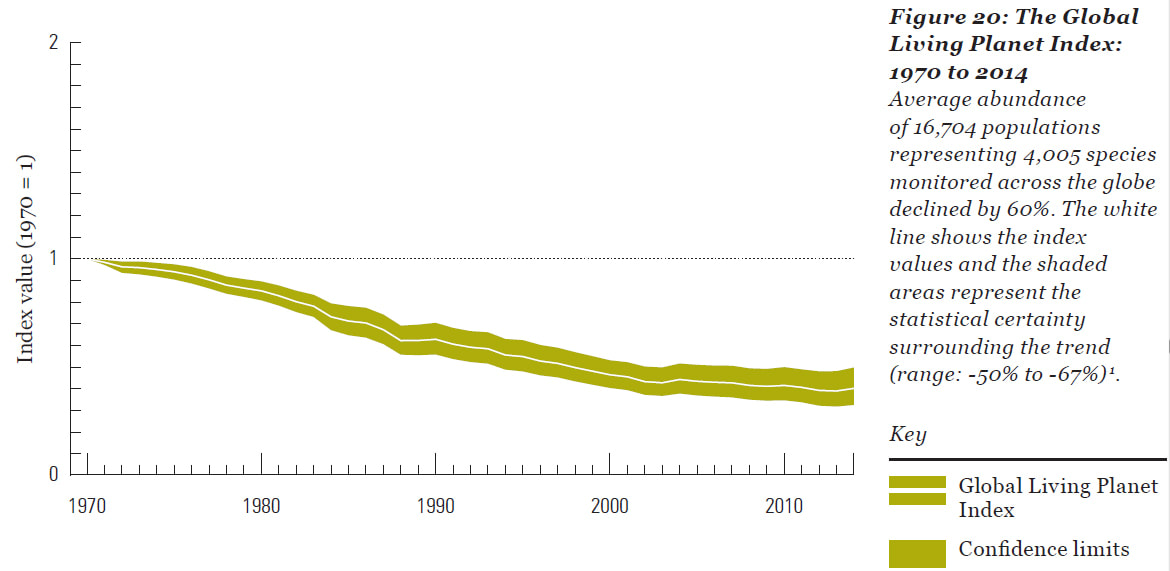
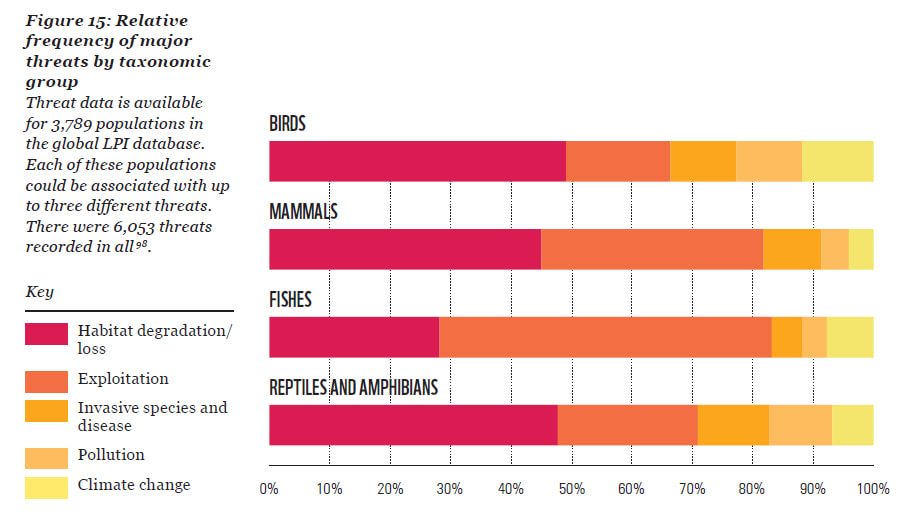
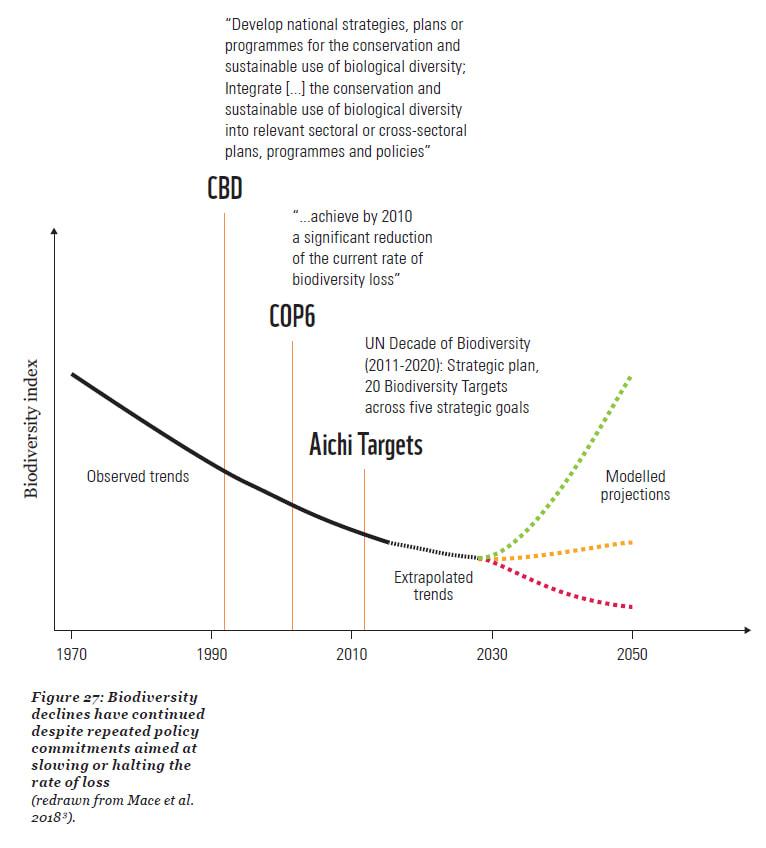
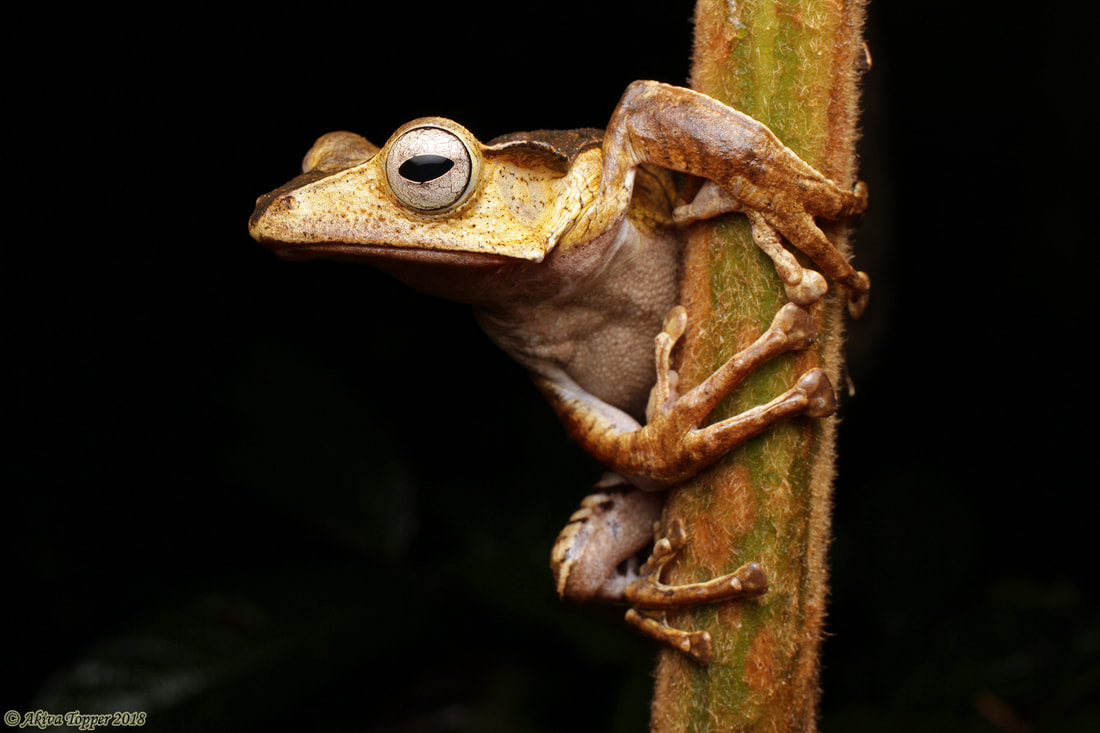
 RSS Feed
RSS Feed